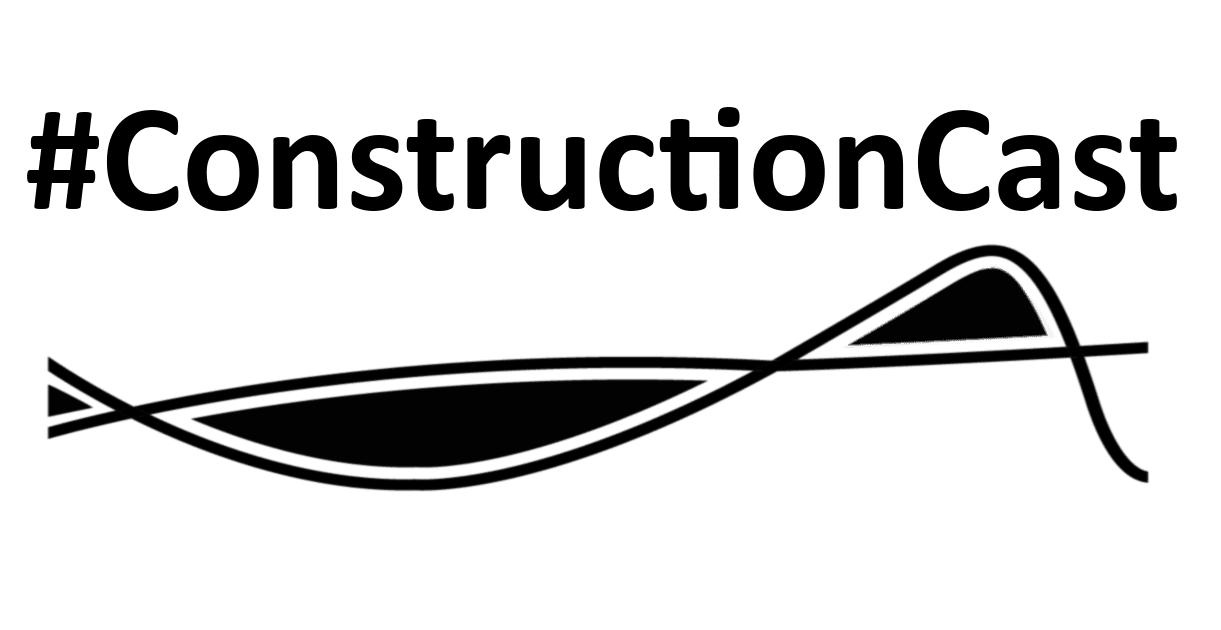This ConstructionCast came at the middle of an interesting week. As we continued lockdown in England, the USA gained a new President (even if the old one refused to believe it). We also had the exciting news that there might be a vaccine for COVID-19 sooner than we thought.
And of course, ConstructionCast was back. In this session, we took a look at the future of design and construction in light of recent events. It’s something that we looked at in a previous session, right back when COVID was relatively new and working from home was a novel and exciting adventure rather than the way of life it has become for many of us. If you missed that session you can find it here.
This time we were joined by project manager at Ashfold, Martin Long, architect and founder of Atelia EURA and chair of the London branch of NAWIC Cristina Lanz Azcarate and Simon Ralphs, partner at law firm ClarksLegal.
The Circular Economy
President-Elect Biden announced that one of his first steps as president will be to bring the USA back into the Paris Agreement on climate change. Martin suggests this is a timely action as it has seemed that carbon emissions have rather fallen off the agenda in the United States in recent years. Whilst states such as California and New York are already driving sustainability changes, the social values that the arrival of Joe Biden represents might mean that corporate America will now be keener on efforts to reduce climate change.
In Martin’s own world, the circular economy has been one of his lockdown reading topics and something he thinks the construction industry needs to do better on. Cristina agrees and thinks the UK needs to look to the rest of the world for inspiration.
The industry has been looking at modern methods of construction to minimise waste. Because these methods require more planning ahead. There is a need to consider the materials you are using more carefully. Compared to other countries, we have a challenge in residential development in particular. Traditional building techniques which are common in housebuilding perhaps do not lend themselves to modern methods of construction. Perhaps because such techniques require upfront costing and longer lead times.
Other countries have accepted this as part of their strategies, northern Europe, Germany, Japan for example. They have adopted the mentality of the manufacturing process – much like a car factory. This means you get a clearer idea of cost, timing, and materials, but maybe less scope to customise. It also allows you to design out waste and involve manufacturers in processes for maintenance and repair.
NAWIC London recently held their annual conference where the theme was sustainability (you can view all the videos and interviews from the event here.) During one of these panel discussions, Cristina became aware of a job role in the industry she had never come across before – circular economy manager. The role is part of the design process, helping the team to understand the life cycle of everything we put into the design – what has to be replaced. how will this be repaired etc. Cristina suggests this could be very valuable for the construction process and we may begin to see the role become more common.
The changing high street and hospitality…
It has been a tough year for those in the high street, hospitality, and leisure. Simon is at the heart of that, advising clients in the restaurant, hospitality, and events sectors.
Events space and leisure have obviously struggled because they need people in large numbers to fill their spaces. Some have adapted to online events, but as many of us have seen, it is difficult and different.
One of Simon’s clients runs event spaces for photoshoots and exhibitions. Their income has effectively fallen off a cliff. They’ve found that some landlords have understood and met them half-way or provided rent freezes, but other landlords expect rent as usual.
Simon has been impressed with how restaurants quickly realised the need to adapt or die. Those who adapted created good delivery models or DIY kits and other ways of getting income in. Not the same amount of income, but income to help them stay afloat. The furlough scheme has been a huge help also.
One client opened a restaurant in May which Simon notes is almost unheard of. They managed to negotiate with the landlord for some rent-free periods, and opened with a robust delivery model with plans to convert to a full restaurant later. Many chefs and restaurateurs have used the time to look at business plans, marketing, menus etc.
However, investors, traditionally wary of restaurants, are even more so right now. As a result, there is little money available for new restaurants to have a chance to open up.
Are Solicitors the Bad Guys?
Stuart asked Simon why solicitors are often seen as the bad guys? He responds that clients are worried about spending money on legal fees, but over the past few months his team has provided a lot of support for free, with the view that down the line it will come back. The restaurant sector works on that basis, helping each other out. He’s also there for advice – e.g. ‘the landlord offered this, what do you think?’
So what might change in the hospitality world? Cristina remarks as someone who did not grow up in the UK, she always found it remarkable that our high streets are driven by large corporations. Over the last 10-15 years, this has begun to change, coffee culture has appeared. She doesn’t mean coffee culture as in Starbucks, but the idea of enjoying life, pulling up a chair and taking a break, sitting and talking to your neighbours.
COVID has also made many of us realise what amenities are available within walking distance of our homes. Suddenly we’ve been forced to consider what we can get without travelling further than we can walk. In Paris, Professor Carlos Moreno has created the concept of the 15-minute city. The idea is that you should find everything you need for everyday life within 15 minutes of your home. It should change the way cities are designed and developments are planned.
Looking to the future:
The effect of Grenfell will likely bring a big change to the future of the built environment, says Martin. Legislation will be changing and the impact will likely be far-reaching. Fire strategy will become much more important, in building design. It will possibly lead to requirements of more training for architects and others in the construction process.
Some of the things likely to come together include ‘building passports’ and the importance of Dame Judith Hackett’s ‘Golden Thread‘. The equipment within our buildings will have a digital passport in some sense. So you will know what you are dealing with when you come to take a building apart in the future. There is a recognition that that will become more prevalent. The golden thread has identified that how projects are procured needs to change.
Offsite / MMC
Offsite has been a slow initiative that the UK hasn’t taken up as much as it might have – but we can see that changing. Martin is a big fan of offsite but admits there are barriers. Technology still does seem to be a niche part of the industry but is perhaps not yet involved in enough of what we do.
Simon looks at the future of our high streets. With the Government trying to make things easier to change between uses, will there perhaps be more fluidity in what buildings can become?
There are some key things he has seen, and indeed was seeing before COVID hit and turned our lives upside down. Office space changing to residential. And with fewer people commuting now than ever there may be more residential hubs. Retail was struggling before COVID and we are seeing changes from retail to leisure e.g. BHS on oxford street becoming a crazy golf centre.
The key driver will be demand and what people want and where they want it when this is all over. If we are going to have that 15-minute community that is what will drive it.
Martin echoes Simon’s thoughts. He’s seeing the need for cross-fertilisation – e.g. interior designer pitching for work in a school because they need to create office environments etc. Working from home has led to Architects and designers possibly reconsidering the way in which they design home spaces.
Locality & Community
Shopping local: Google has been running a local advert with Anthony Joshua – this idea of shopping, working, eating locally is gaining popularity. The issue will be how you deliver it. martin makes the pint that Landowners (particularly in London)are not necessarily local. London is owned by thousands of people who don’t live here – so how do you focus them on locality.
Finally, we asked each of our panellists for a one-word answer to their predictions of the growth areas for the future. For Martin, the office is a key part of our communities. He thinks we will return to offices and is seeing a continued pipeline for office developments. However, we may not be returning in the same way as we were before.
Simon thinks the future is in logistics. As in sheds. Warehousing has become crucial with everyone taking deliveries and thinks that element will not disappear.
Finally, for Cristina, the future lies in bespoke projects. Adapting to clients changing needs. Sector-wise, retrofit and how can we make the most of the structures we currently have post-COVID will be another core area for change.
Thank you to all our speakers for their support, and do join us for the next ConstructionCast.

